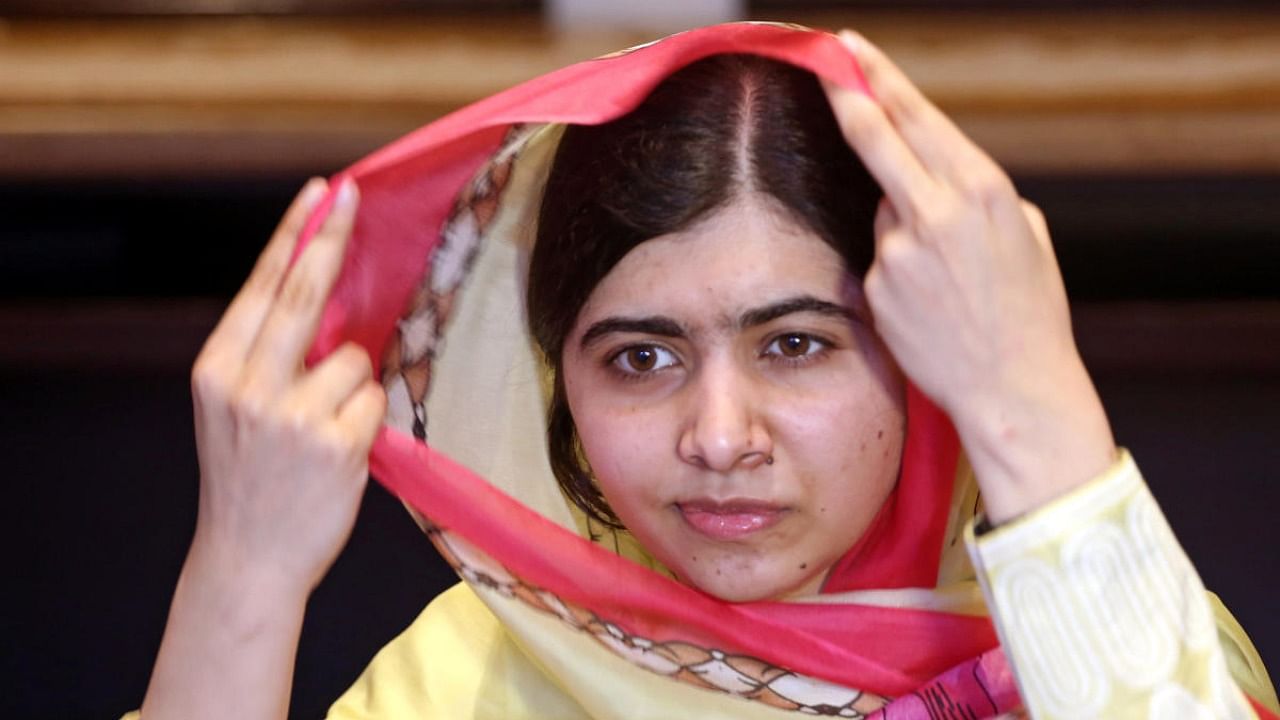
Shocked at the takeover of Afghanistan by the Taliban, Pakistani activist and the youngest Nobel Peace Prize winner Malala Yousafzai has said she is "deeply worried" for women, minorities and human rights advocates living in the strife-torn country.
The 24-year-old rights activist, who was shot in the head by Taliban militants in 2012 in Pakistan's Swat region for her campaign for the education of girls, urged global and regional powers to call for an immediate ceasefire and provide help to civilians in Afghanistan.
"We watch in complete shock as Taliban takes control of Afghanistan. I am deeply worried about women, minorities and human rights advocates," she tweeted on Sunday.
"Global, regional and local powers must call for an immediate ceasefire, provide urgent humanitarian aid and protect refugees and civilians," wrote Malala, who now lives in the UK.
The longstanding war in Afghanistan reached a watershed moment on Sunday when the Taliban insurgents closed in on Kabul before entering the city and took over the presidential palace, forcing embattled President Ashraf Ghani to join fellow citizens and foreigners to flee the country.
Taliban insurgents began moving towards Kabul following the overnight collapse of the two remaining cities of Mazar-e-Sharif and Jalalabad.
Malala was shot at by the local Taliban militants in December 2012 for her female education campaigning in the Swat Valley in northeastern Pakistan.
Severely wounded, she was airlifted from one military hospital in Pakistan to another and later flown to the UK for treatment. Following the attack, the Taliban released a statement saying that they would target Malala again if she survived.
At age 17, Malala became the youngest recipient of the Nobel Peace Prize for her education advocacy in 2014 when she shared the coveted honour with India's social activist Kailash Satyarthi.
Unable to return to Pakistan after her recovery, the famed activist moved to Britain, setting up the Malala Fund and supporting local education advocacy groups with a focus on Pakistan, Nigeria, Jordan, Syria and Kenya.
She began her campaign aged just 11, when she started writing a blog for the BBC's Urdu service in 2009 about life under the Taliban in Swat in Khyber Pakhtunkhwa province, where they were banning girls' education.
Malala completed her degree in philosophy, politics and economics from the prstigious Oxford University in June last year.
In 2007, the Islamist militants had taken over the area and imposed a brutal rule. Opponents were murdered, people were publicly flogged for supposed breaches of the sharia law, women were banned from going to market, and girls were stopped from going to school.
The Taliban, who are opposed to the education of girls, have destroyed hundreds of schools in Pakistan.
The Taliban ruled Afghanistan from 1996 to 2001, but following the September 11, 2001 attacks on the United States, the brutal regime of the militant group came to an end as they were removed from power by US-led forces in 2001.
The group, however, has been on the offensive in recent months and has now seized power again.